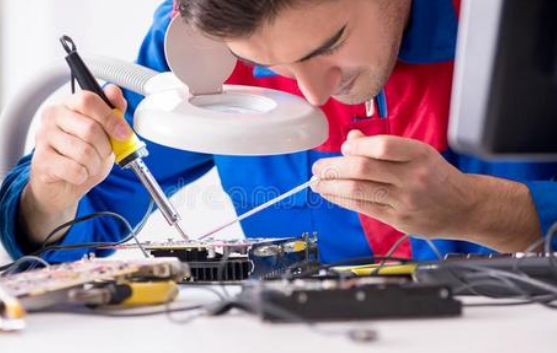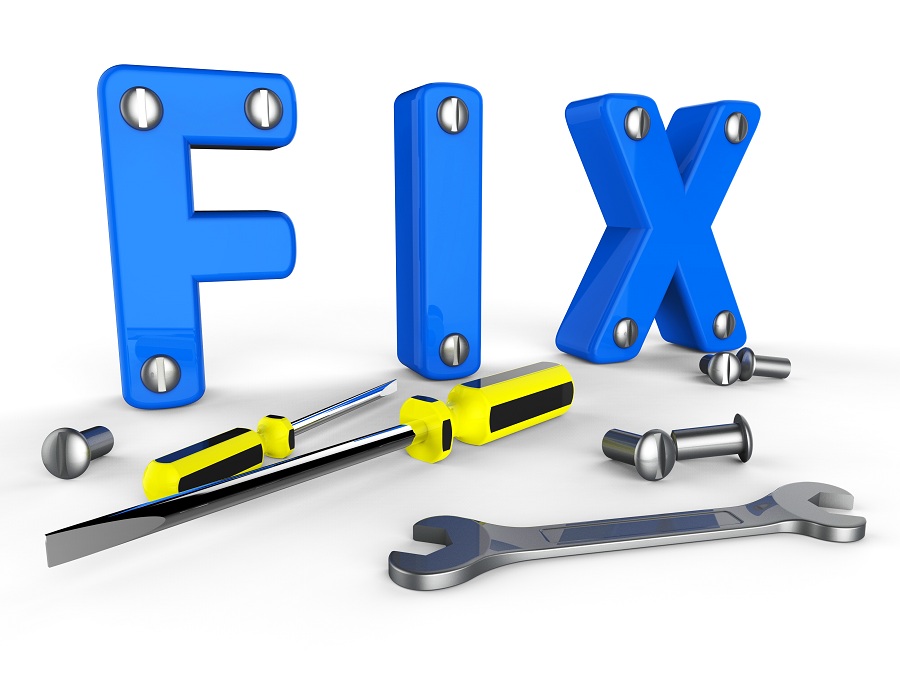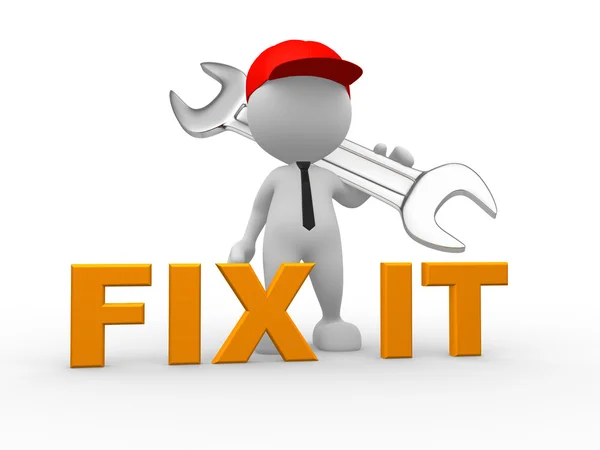Stop CPU Lag: Simple Ways To Get Your Computer Running Smoothly Again
Detail Author:
- Name : Mrs. Dixie Lesch
- Username : jan.fisher
- Email : lea14@hotmail.com
- Birthdate : 1972-02-17
- Address : 991 Callie Fall Shadberg, CA 02181-0689
- Phone : +1 (984) 921-4338
- Company : Kirlin PLC
- Job : MARCOM Manager
- Bio : Quaerat consequuntur amet aliquam modi qui modi id. Dicta labore minus ut. Impedit cupiditate error explicabo rem qui et optio. Omnis dolorem in ullam quod ducimus.
Socials
facebook:
- url : https://facebook.com/hailey_official
- username : hailey_official
- bio : Eius minima laborum est rerum. Rerum nesciunt doloremque quia.
- followers : 6020
- following : 1677
twitter:
- url : https://twitter.com/hailey_id
- username : hailey_id
- bio : Laborum voluptatem dolorem a quam sint. Laboriosam dolorem recusandae excepturi nesciunt et tempore. Deserunt accusamus sit et quibusdam accusamus.
- followers : 2650
- following : 456
Is your computer feeling sluggish, like it's wading through mud? You know, when programs take ages to open, or even just moving your mouse feels delayed? That frustrating slowdown, often called CPU lag, can really get in the way of what you need to do, whether you're working, studying, or just trying to relax with some online fun. It's a common problem, and honestly, it can make you want to throw your machine out the window.
A central processing unit, or CPU, is basically the brain of your computer. When it's struggling to keep up, everything else slows down too, almost like trying to run a marathon with weights tied to your ankles. This can happen for a lot of reasons, and it often means your computer is just trying to do too much at once. It's a pretty annoying situation, and you might be wondering what can even be done about it.
When we talk about how to fix CPU lag, it's about making things firm, stable, and steady again for your computer. My text tells us that "fix" means "to make firm, stable, or stationary," and also "the act of adjusting, correcting, or repairing." So, in a way, we're going to adjust and correct your computer's behavior to bring back that smooth, stable feeling you want. It's about getting things back to how they should be, rather than just putting up with the slowdown, you know?
Table of Contents
- What Exactly Is CPU Lag?
- Common Reasons Your CPU Feels Slow
- Simple Steps to Fix CPU Lag
- Frequently Asked Questions About CPU Lag
- Keeping Your Computer Quick and Responsive
What Exactly Is CPU Lag?
CPU lag happens when your computer's central processing unit, the CPU, can't keep up with all the tasks it's given. This leads to delays in actions and a general feeling of slowness. It's like a traffic jam inside your computer, so to speak.
The Brain of Your Computer
Your CPU is the main chip that does all the calculations and runs instructions for every program and process. It's basically what makes your computer think and act. When it's busy, it's doing its job, but if it gets too busy, that's when you notice the slowdown, you know?
Signs Your CPU is Struggling
How can you tell if your CPU is the problem? Well, your computer might feel very slow to respond, or programs might freeze up a lot. You might hear the fans running very loud, or notice your computer getting quite hot to the touch. Sometimes, even simple things like opening a web page take forever, or your mouse pointer jumps around. These are all pretty clear signs, actually.
Common Reasons Your CPU Feels Slow
There are many things that can make your CPU work too hard and cause lag. Understanding these can help you figure out what to do. It's like finding out why your car isn't running well before you try to fix it, right?
Too Many Open Programs
Each program you open uses some of your CPU's attention. If you have many applications running at the same time, especially demanding ones, your CPU can get overwhelmed. It's like trying to talk to ten people at once; you can only really listen to a few, so to speak.
Background Apps and Processes
Even when you don't have programs open, many apps run in the background. Things like cloud syncing services, update checkers, or even some security software can quietly use up CPU resources. These can be pretty sneaky, you know?
Outdated Drivers
Drivers are bits of software that help your computer talk to its hardware, like your graphics card or network adapter. If these drivers are old or not working right, your CPU might have to do extra work to make things happen. This can cause a bit of a hiccup in performance, sometimes.
Overheating Issues
CPUs get hot when they work hard. If your computer's cooling system isn't doing its job, the CPU might get too hot. To protect itself, the CPU will slow down its work, a process called "thermal throttling." This is a natural safety measure, but it means your computer will feel slow, naturally.
Malware and Viruses
Nasty software like viruses or malware can run hidden processes that use up a lot of CPU power. They might be trying to steal information or just cause trouble. These unwanted guests can really bog down your system, as a matter of fact.
Full Hard Drive
While not directly about the CPU, a nearly full hard drive can slow down your computer in general. The operating system needs space to work, like for temporary files and virtual memory. If there's no room, things can grind to a halt, or at least feel very slow, you know?
Power Settings
Your computer's power settings can tell the CPU how much effort to put in. If you have it set to a "power saving" mode, it might intentionally run slower to save battery or electricity. This is by design, of course, but it means less speed.
Simple Steps to Fix CPU Lag
Now that we know what causes CPU lag, let's talk about how to fix cpu lag with some practical steps. These are things you can do right now to help your computer feel better. It's pretty straightforward, actually.
Close Unnecessary Programs
The simplest way to free up your CPU is to close programs you're not using. Look at your taskbar or dock for open applications and close them if you don't need them right then. This is often the first thing to try, and it can make a big difference, you know?
- Use Task Manager (Windows) or Activity Monitor (Mac): Press Ctrl+Shift+Esc (Windows) or Cmd+Space, type "Activity Monitor" (Mac). Look for programs using a lot of CPU percentage and end them if they're not essential. Just be careful not to close system processes, of course.
Manage Startup Applications
Many programs start automatically when your computer turns on. This can quickly use up your CPU and memory right from the start. You can stop these programs from launching automatically. It's a good habit to check this, in a way.
- Windows: Open Task Manager (Ctrl+Shift+Esc), go to the "Startup" tab. Disable any programs you don't need to start with your computer. This can really speed up boot times, apparently.
- Mac: Go to System Settings (or Preferences), then "General," and find "Login Items." Remove or disable items you don't want starting up.
Update Your Drivers
Keeping your drivers current can help your hardware and CPU work together more smoothly. Check for updates for your graphics card, chipset, and other important components. Sometimes, a driver update can completely change how your system performs, you know?
- Visit the website of your computer manufacturer or the maker of your specific hardware (like NVIDIA, AMD, Intel).
- Download and install the latest drivers for your system. This might take a little time, but it's worth it, pretty much.
Check for Overheating
If your computer feels hot, it might be throttling its CPU speed. Make sure your computer's vents are clear and not blocked by anything. You can also try cleaning out dust. A cooler CPU works better, as a matter of fact.
- Use compressed air to blow dust out of vents and fans. Do this outside, if you can, because dust will fly.
- Consider using a laptop cooling pad if you have a laptop that often gets hot.
- Make sure your computer is on a flat, hard surface, not on a blanket or pillow that can block airflow.
Scan for Malware
Run a full scan with a good antivirus or anti-malware program. Removing unwanted software can free up a lot of CPU resources. This is a crucial step for computer health, really.
- Use a reputable security program. Make sure it's updated with the latest definitions.
- Perform a deep scan, as these can find hidden threats.
Free Up Disk Space
Having enough free space on your main drive (usually C: on Windows) is important for overall computer performance. Delete old files, uninstall programs you don't use, and empty your Recycle Bin. It's like decluttering your physical space, in a way.
- Windows: Use Disk Cleanup (search for it in the Start menu). It can help you find and remove temporary files and other junk.
- Uninstall unused programs: Go to "Apps & features" in Windows Settings or "Applications" folder on Mac and remove software you no longer need.
Adjust Power Options
On Windows, your power plan can affect CPU performance. If it's set to "Power saver," your CPU might not be running at its full speed. Changing this can sometimes give you an instant boost. It's a quick thing to check, so.
- Windows: Go to Control Panel > Power Options. Choose "High performance" or "Balanced" plan.
Consider a System Refresh
If all else fails, a fresh install of your operating system can often fix deep-seated performance problems. This is a bigger step, but it essentially wipes the slate clean and gives you a like-new system. It's a bit of work, but can be really effective, you know?
- Back up all your important files first!
- Use your operating system's built-in refresh or reset options. For Windows, search for "Reset this PC."
Frequently Asked Questions About CPU Lag
People often have similar questions about their computer slowing down. Here are some common ones, with some thoughts on them. It's good to get these clear, you know?
Is 100% CPU usage bad?
Not always. If you're doing a demanding task, like playing a complex video game or editing a video, your CPU might hit 100% usage, and that's normal. It's using all its capacity to get the job done. However, if your CPU is at 100% when you're just browsing the web or doing light tasks, that points to a problem. Something is probably hogging resources that shouldn't be, so.
Can CPU lag be fixed permanently?
You can't "permanently" fix CPU lag in the sense that your computer will never slow down again. Computers will always face new demands and accumulate files. But, you can fix the *causes* of current lag and put practices in place to keep your computer running well for a long time. Regular maintenance and being mindful of what runs on your system will help a lot, really.
How often should I check for CPU lag?
You should check for CPU lag whenever your computer starts to feel slow. There's no set schedule, but if you notice things are not as snappy as they used to be, that's your sign. Doing a quick check of Task Manager or Activity Monitor when you feel a slowdown is a good habit. It's pretty easy to do, anyway.
Keeping Your Computer Quick and Responsive
Getting rid of CPU lag means taking a few practical steps to make your computer stable and responsive again. By closing unnecessary programs, managing what starts with your system, keeping drivers up to date, and watching for overheating, you can often bring back that smooth feeling. It's about being a bit proactive with your computer's health, as a matter of fact.
Regular Maintenance Tips
To keep your computer running well, make it a habit to do some regular clean-up. This means scanning for malware often, keeping your operating system updated, and occasionally clearing out old files. Think of it like regular oil changes for your car; it keeps everything running smoothly, you know? Learn more about computer care on our site.
When to Think About Upgrades
Sometimes, even after all these steps, an older computer might still struggle with modern software. If your CPU is just too old or doesn't have enough "cores" or processing power for what you need to do today, then thinking about an upgrade might be the next step. This could mean adding more memory (RAM) or getting a solid-state drive (SSD), which can make a huge difference. You can find more details on computer upgrades that might help your specific situation. Also, for general computer performance tips, you might find useful information on Microsoft's official support pages, which is a good resource for Windows users, too.

fix和repair的区别-百度经验

How to Fix Bad Restaurant Reviews | Touch Dynamic

Fix it Stock Photos, Royalty Free Fix it Images | Depositphotos